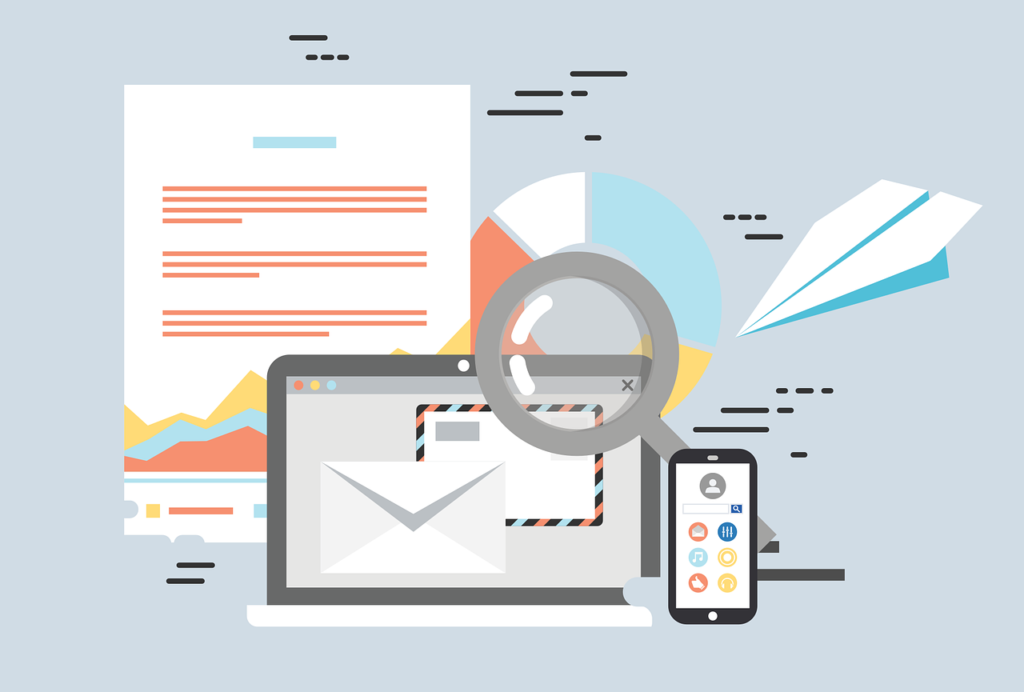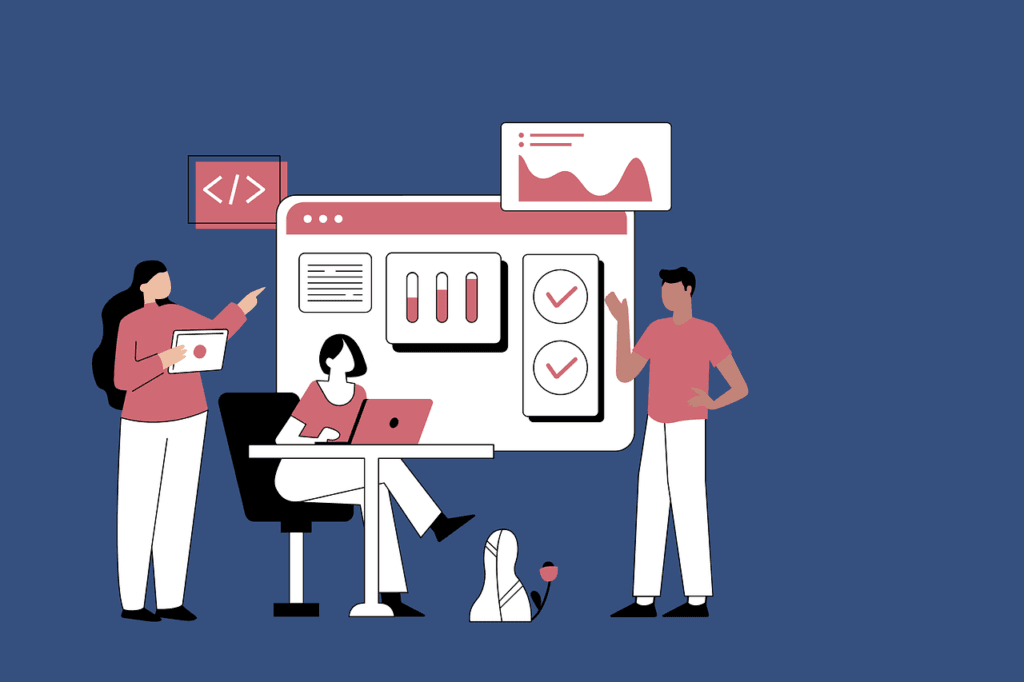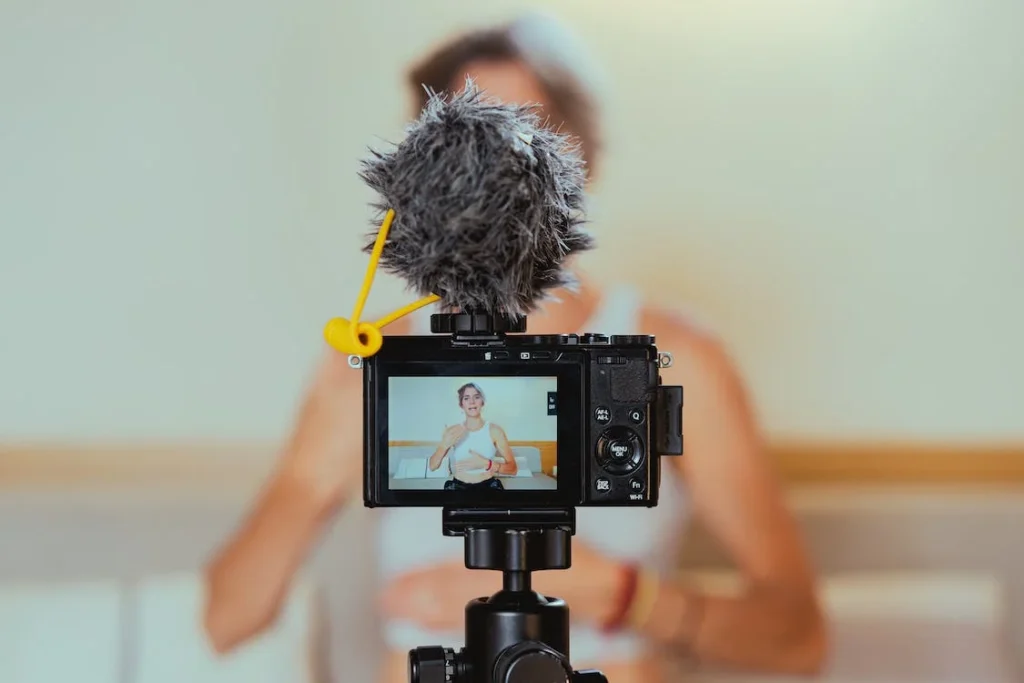This Article has been revised, edited and added to, by Poulomi Chakraborty.
- AI: The New Matchmaker in Influencer Marketing
- Cutting Through the Noise with Precision
- The Power of Predictive Analysis
- Understanding the Value Beyond Follower Count
- Leveraging AI for Enhanced Audience Alignment
- Utilizing Sentiment Analysis for Better Partnerships
- Strategic Campaign Planning with AI Insights
- Real-Time Data for Agile Campaign Management
- Building Long-Term Relationships with Influencers
- Harnessing AI for Strategic Advantage
- Personalization: AI’s Middle Name
- Segmenting the Audience Like a Pro
- Tailoring Content for Maximum Engagement
- Crafting Hyper-Targeted Campaigns
- Dynamic Content Customization
- Personalized Customer Journeys
- Enhancing Engagement with AI-Driven Personalization
- Maximizing ROI with Tailored Campaigns
- Building Brand Loyalty Through Personalized Experiences
- Embracing AI for Strategic Personalization
- The Automation Advantage
- Keeping Campaigns on Track with AI Assistants
- Streamlining Operations for Maximum Efficiency
- Enhancing Content Quality and Consistency
- Optimizing Campaign Management
- Scaling Campaigns with Ease
- Reducing Human Error and Enhancing Accuracy
- Facilitating Data-Driven Decision Making
- Improving Influencer Relationships
- Embracing Automation for Strategic Growth
- Streamlining Campaign Analysis with AI
- Decoding Data with Machine Learning
- Real-Time Engagement Tracking
- Accelerating Insight Generation
- Comprehensive Performance Metrics
- Predictive Analytics for Future Planning
- Real-Time Performance Monitoring
- Actionable Insights for Continuous Improvement
- Enhancing Collaboration with Influencers
- Leveraging AI for Competitive Analysis
- Integrating AI with Existing Tools
- Harnessing AI for Strategic Campaign Analysis
- AI-Driven Real-Time Adjustments
- Dynamic Content Optimization
- Predictive Budget Allocation
- Enhancing Campaign Responsiveness
- Utilizing Real-Time Sentiment Analysis
- Adaptive Content Strategies
- Optimizing Posting Schedules
- Managing Crisis Situations
- Enhancing Personalization in Real-Time
- Improving ROI through Agile Adjustments
- Leveraging AI for Strategic Agility
- Enhancing ROI with AI Insights
- Beyond Likes and Shares
- Customer Lifetime Value Predictions
- Leveraging Data-Driven Decision Making
- Optimizing Influencer Selection
- Predictive Analytics for Budget Allocation
- Real-Time Performance Tracking
- Enhancing Content Relevance
- Personalizing Customer Experiences
- Measuring Long-Term Impact
- Strategic A/B Testing
- Driving Sustainable Growth with AI
- Conclusion
Influencer marketing is no longer just about matching brands with popular personalities and hoping their followers will bite. It’s evolving, getting smarter, and more tailored, thanks to the burgeoning role of Artificial Intelligence (AI). Today, AI is not just a buzzword but a real game-changer, transforming how brands connect with their audiences through influencers. So, let’s unwrap this high-tech box and see how it’s redefining the influencer marketing landscape.
AI: The New Matchmaker in Influencer Marketing

Remember when finding the right influencer was like sifting through a haystack looking for that golden needle? Well, AI has brought a magnet to the field. Advanced algorithms analyze vast amounts of data to identify influencers who align perfectly with a brand’s values, target audience, and campaign goals. This isn’t just about who has the most followers; it’s about who has the right followers and engagement that speaks volumes.
Cutting Through the Noise with Precision
AI tools don’t just find any influencer; they find your influencer. They look at engagement rates, audience demographics, content style, and even the sentiment behind comments. This precision allows brands to partner with influencers who are more likely to resonate with their message, ensuring that the content feels like it’s speaking directly to you, the consumer.
The Power of Predictive Analysis
Predictive analytics is like the weather forecast of influencer marketing — it helps brands anticipate which influencer partnerships are likely to bring sunny sales and which might leave them under a cloud. By predicting campaign outcomes based on historical data, AI helps brands invest in partnerships that are primed for success.
Understanding the Value Beyond Follower Count
For startup founders, understanding the strategic value of AI in influencer marketing goes beyond mere follower count. AI algorithms analyze qualitative data, such as audience sentiment and engagement patterns, to ensure that the selected influencers genuinely resonate with the brand’s values and goals.
This nuanced approach helps startups avoid common pitfalls, such as partnering with influencers whose follower numbers are inflated or whose audience engagement is superficial. By focusing on influencers who foster meaningful interactions, startups can build more authentic and effective campaigns.
Leveraging AI for Enhanced Audience Alignment
AI tools excel at matching brands with influencers whose audiences align closely with the target demographics. This alignment is critical for startups looking to maximize their marketing budgets.
AI analyzes various data points, including audience interests, behaviors, and engagement history, to identify influencers whose followers are likely to be interested in the brand’s offerings. This targeted approach reduces wastage and increases the likelihood of campaign success, providing a higher return on investment for startups.
Utilizing Sentiment Analysis for Better Partnerships
Sentiment analysis is another powerful capability of AI that can significantly enhance influencer marketing strategies for startups. By evaluating the tone and sentiment of an influencer’s audience interactions, AI can identify those who generate positive engagement and foster a supportive community.
This insight allows startups to choose influencers who not only have a large following but also maintain a positive and enthusiastic audience. Partnering with such influencers can amplify the brand’s message and create a more favorable perception among potential customers.
Strategic Campaign Planning with AI Insights
AI doesn’t just find influencers; it also helps in strategic campaign planning. By providing detailed insights into an influencer’s past performance, content style, and audience engagement, AI allows startups to tailor their campaigns for maximum impact.
Startups can use this data to co-create content with influencers that aligns perfectly with their audience’s preferences and the brand’s message. This collaboration ensures that the content feels authentic and engaging, driving better results.
Real-Time Data for Agile Campaign Management
One of the most strategic advantages of AI in influencer marketing is the ability to make data-driven decisions in real-time. AI tools continuously monitor campaign performance, providing startups with up-to-the-minute insights into how their campaigns are performing.
This real-time data allows for agile adjustments, such as tweaking content, changing posting times, or even shifting focus to different influencers if initial results are not as expected. This flexibility is crucial for startups, as it enables them to optimize their campaigns on the fly and ensure they stay on track to meet their marketing goals.
Building Long-Term Relationships with Influencers
AI can also play a strategic role in building long-term relationships with influencers. By analyzing engagement trends and audience responses over time, AI helps identify influencers who consistently deliver high value. Startups can leverage this information to establish ongoing partnerships, fostering a sense of loyalty and collaboration.
Long-term relationships with the right influencers can lead to more authentic endorsements and a deeper connection with the audience, which is invaluable for brand growth and credibility.
Harnessing AI for Strategic Advantage
For startup founders, leveraging AI in influencer marketing is not just about keeping up with trends; it’s about gaining a strategic advantage in a competitive market. By understanding and utilizing the full potential of AI—from advanced audience analysis and sentiment evaluation to real-time campaign adjustments and long-term relationship building—startups can create more effective, efficient, and impactful influencer marketing campaigns.
This strategic use of AI helps startups connect with the right influencers, resonate with their target audience, and ultimately drive better business outcomes.
Personalization: AI’s Middle Name

One size fits all? Not anymore. AI is making influencer marketing as bespoke as a tailored suit. By harnessing data on consumer behavior, AI can help craft personalized marketing messages that influencers can share, ensuring that the content strikes a chord with each unique segment of the audience.
Segmenting the Audience Like a Pro
AI segments audiences based on a myriad of factors — age, location, interests, buying behavior, and even mood. This means that the content an influencer shares will cater to specific segments, making each post feel like a personal conversation rather than a broadcast message.
Tailoring Content for Maximum Engagement
Imagine an influencer’s post that changes slightly depending on who’s looking at it — a fitness tip that varies according to the viewer’s exercise preferences, or a recipe that tweaks itself based on dietary restrictions. AI is making this level of content customization possible, leading to skyrocketing engagement rates.
Crafting Hyper-Targeted Campaigns
For startup founders, the power of AI in personalization lies in its ability to craft hyper-targeted campaigns. AI leverages vast amounts of data to create detailed customer profiles, allowing startups to segment their audience with incredible precision.
By understanding the nuances of their target market—such as specific interests, purchasing behavior, and online habits—startups can tailor their influencer marketing efforts to address the unique needs and preferences of each segment.
This level of personalization ensures that marketing messages are not only relevant but also compelling, significantly increasing the likelihood of engagement and conversion.
Dynamic Content Customization
AI enables dynamic content customization, a game-changer for startups looking to stand out in a crowded market. Instead of a one-size-fits-all approach, AI allows influencers to deliver content that adapts to individual viewer preferences in real time.
For example, an influencer could present different product features or benefits based on the viewer’s past interactions or expressed interests. This personalized approach makes the content feel more relevant and engaging, fostering a deeper connection with the audience and enhancing the overall effectiveness of the campaign.
Personalized Customer Journeys
Creating personalized customer journeys is another strategic advantage of AI in influencer marketing. Startups can use AI to map out and optimize the entire customer journey, from initial discovery to post-purchase engagement.
By analyzing data from various touchpoints, AI helps identify the most effective content and engagement strategies for each stage of the journey. This allows startups to deliver tailored messages that guide potential customers through the funnel, addressing their specific needs and concerns at each step.
Personalized journeys not only improve the customer experience but also drive higher conversion rates and customer loyalty.
Enhancing Engagement with AI-Driven Personalization
AI-driven personalization enhances engagement by making interactions feel more meaningful and relevant. Startups can use AI to analyze and respond to audience behavior in real-time, ensuring that content resonates with viewers on a personal level.
For instance, AI can help determine the best times for influencers to post, the most engaging types of content, and the optimal frequency of posts. By continuously refining these elements based on real-time feedback, startups can maintain high levels of engagement and keep their audience interested and involved.
Maximizing ROI with Tailored Campaigns
For startup founders, maximizing ROI is crucial, and AI-driven personalization can significantly contribute to this goal. By delivering highly targeted and relevant content, AI helps ensure that marketing efforts are not wasted on disinterested audiences. Instead, resources are focused on segments that are most likely to convert.
Additionally, AI can help identify which types of content and influencer partnerships yield the best results, allowing startups to allocate their budgets more effectively. This strategic approach not only enhances the efficiency of marketing campaigns but also boosts overall ROI.
Building Brand Loyalty Through Personalized Experiences
Personalized experiences are key to building brand loyalty, and AI makes this more achievable than ever for startups. By providing a consistent and tailored experience across all touchpoints, AI helps create a strong emotional connection between the brand and its customers.
Influencers play a vital role in this process by delivering personalized content that resonates with their followers. Over time, these personalized interactions foster trust and loyalty, turning customers into brand advocates who are more likely to make repeat purchases and recommend the brand to others.
Embracing AI for Strategic Personalization
For startup founders, embracing AI for strategic personalization in influencer marketing is not just an option but a necessity. AI’s ability to create hyper-targeted campaigns, dynamically customize content, and enhance customer journeys provides startups with a powerful tool to connect with their audience on a deeper level.
By leveraging AI-driven personalization, startups can boost engagement, maximize ROI, and build lasting brand loyalty. As the landscape of influencer marketing continues to evolve, those who effectively integrate AI into their strategies will be well-positioned to succeed in an increasingly competitive market.
The Automation Advantage
Marketing teams are breathing sighs of relief as AI automates the grunt work. From scheduling posts to analyzing engagement, AI takes care of the repetitive tasks, allowing brands and influencers to focus on creating and sharing content that matters.
Keeping Campaigns on Track with AI Assistants
AI doesn’t call in sick or take coffee breaks. It’s always on, ensuring that campaigns run smoothly and on schedule. AI assistants can send reminders, prompt influencers to post at the best times, and even suggest content tweaks based on real-time engagement data.
Streamlining Operations for Maximum Efficiency
For startup founders, the automation advantage offered by AI in influencer marketing is a game-changer in streamlining operations. By automating repetitive and time-consuming tasks, AI frees up valuable resources, allowing marketing teams to focus on strategic activities.
Automated scheduling tools, for example, ensure that content is posted at optimal times without the need for manual intervention. This not only maximizes reach and engagement but also ensures consistency in the campaign execution, which is crucial for maintaining audience interest and trust.
Enhancing Content Quality and Consistency
AI-driven automation enhances the quality and consistency of content produced by influencers. Automated tools can assist in content creation by providing influencers with data-driven insights and recommendations. For instance, AI can suggest the most effective hashtags, captions, and image styles based on current trends and audience preferences.
This ensures that the content resonates well with the target audience and maintains a high standard of quality. Consistent and high-quality content is key to building and sustaining audience engagement, which is particularly important for startups looking to establish their brand presence.
Optimizing Campaign Management
Managing influencer campaigns can be complex and resource-intensive, but AI simplifies this process through automation. AI tools can automate various aspects of campaign management, from influencer selection and contract management to performance tracking and reporting. This allows startups to manage multiple campaigns simultaneously without overwhelming their marketing teams.
Additionally, automated reporting tools provide real-time insights into campaign performance, enabling startups to make informed decisions quickly and efficiently. This strategic use of automation ensures that campaigns are not only well-executed but also continuously optimized for better results.
Scaling Campaigns with Ease
One of the most significant advantages of AI-driven automation is the ability to scale influencer marketing campaigns with ease. Startups often face the challenge of growing their marketing efforts while maintaining efficiency and effectiveness. AI enables startups to scale their campaigns by automating processes such as influencer outreach, content approvals, and audience targeting.
This scalability ensures that as the startup grows, its influencer marketing efforts can expand proportionately without compromising on quality or effectiveness. The ability to scale seamlessly is crucial for startups aiming to rapidly increase their market presence and customer base.
Reducing Human Error and Enhancing Accuracy
AI automation significantly reduces the risk of human error, enhancing the overall accuracy of influencer marketing campaigns. Automated systems can handle large volumes of data with precision, ensuring that tasks such as data entry, performance analysis, and audience segmentation are performed without mistakes.
This level of accuracy is vital for startups, where even small errors can lead to significant setbacks. By minimizing errors, AI automation helps startups maintain a professional and reliable image, which is essential for building trust and credibility with their audience.
Facilitating Data-Driven Decision Making
AI-powered automation facilitates data-driven decision-making, providing startups with actionable insights that drive better outcomes. Automated data collection and analysis tools gather and interpret vast amounts of information, offering startups a clear understanding of their campaign performance and audience behavior.
This data-driven approach enables startups to identify trends, predict future outcomes, and make strategic adjustments to their campaigns in real-time. By leveraging these insights, startups can enhance their marketing strategies, optimize resource allocation, and achieve higher returns on their investment.
Improving Influencer Relationships
AI automation also plays a pivotal role in improving relationships between startups and influencers. Automated communication tools can streamline interactions, making it easier for startups to coordinate with influencers and manage campaign activities. For example, AI can automate the sending of campaign briefs, reminders, and performance feedback, ensuring that influencers are always informed and engaged.
This streamlined communication fosters a positive working relationship, making influencers more likely to collaborate effectively and produce high-quality content. Strong influencer relationships are vital for the success of marketing campaigns, as they contribute to the authenticity and credibility of the brand’s message.
Embracing Automation for Strategic Growth
For startup founders, embracing AI-driven automation in influencer marketing is a strategic move that offers numerous benefits. From streamlining operations and enhancing content quality to optimizing campaign management and facilitating data-driven decision-making, AI automation provides startups with the tools they need to succeed in a competitive market.
By reducing human error, improving efficiency, and enabling scalability, automation helps startups maximize their marketing efforts and achieve sustainable growth. As the influencer marketing landscape continues to evolve, startups that leverage the automation advantage will be well-positioned to thrive and lead in their respective industries.
Streamlining Campaign Analysis with AI

Analyzing the success of influencer campaigns is no small feat. It involves crunching numbers, understanding analytics, and deciphering what they mean for future campaigns. AI simplifies this process by providing actionable insights that can drive better decision-making.
Decoding Data with Machine Learning
Machine learning, a subset of AI, takes historical campaign data and learns from it. Over time, it can identify patterns and trends that might take humans much longer to spot. This means quicker adjustments to strategies and a better understanding of what types of influencer content resonate with audiences.
Real-Time Engagement Tracking
Real-time data is like gold in the fast-paced world of social media. AI tools track engagement as it happens, allowing brands to see what’s working and what’s not, often within minutes of posting. This level of immediate feedback is invaluable for tweaking campaigns on the fly to ensure they stay on the path to success.
Accelerating Insight Generation
For startup founders, the ability to generate insights quickly and accurately is crucial for staying agile in a competitive market. AI-powered analytics tools significantly accelerate this process by automating data collection and analysis.
By leveraging machine learning algorithms, AI can sift through vast amounts of data in real-time, identifying trends and patterns that might be missed by human analysts. This rapid insight generation allows startups to make timely decisions and adapt their strategies swiftly, ensuring they remain ahead of market trends and competitor actions.
Comprehensive Performance Metrics
AI provides startups with a comprehensive view of campaign performance through advanced metrics that go beyond traditional likes and shares. By analyzing deeper engagement metrics, such as audience sentiment, click-through rates, and conversion rates, AI offers a holistic understanding of how well a campaign is performing.
This comprehensive analysis helps startups identify which aspects of their campaigns are driving success and which areas need improvement. Armed with this knowledge, founders can fine-tune their marketing strategies to enhance overall effectiveness and achieve better results.
Predictive Analytics for Future Planning
Predictive analytics is a powerful feature of AI that helps startups plan future campaigns with greater accuracy. By analyzing historical data and current trends, AI can forecast the potential outcomes of various marketing strategies.
This predictive capability allows startups to identify the most promising opportunities and allocate their resources more effectively. For instance, AI can predict which types of content are likely to resonate with specific audience segments or which influencers will drive the highest engagement. These insights enable startups to craft data-driven, strategic marketing plans that are more likely to succeed.
Real-Time Performance Monitoring
AI’s ability to monitor campaign performance in real-time provides startups with a significant strategic advantage. Real-time analytics allow founders to track how their campaigns are performing at any given moment, enabling them to make immediate adjustments as needed.
This level of responsiveness is particularly valuable in the fast-paced world of social media, where trends and audience preferences can change rapidly. By continuously optimizing their campaigns based on real-time data, startups can ensure that they are always delivering the most relevant and engaging content to their audience.
Actionable Insights for Continuous Improvement
AI does not just provide data; it offers actionable insights that drive continuous improvement. For startup founders, this means receiving specific, data-backed recommendations on how to enhance their influencer marketing efforts.
AI can suggest changes to content strategies, posting schedules, or influencer partnerships based on performance data. These actionable insights enable startups to implement incremental improvements that collectively lead to significant gains in campaign effectiveness. By continuously refining their approach, startups can achieve sustained growth and success in their marketing endeavors.
Enhancing Collaboration with Influencers
AI-driven campaign analysis also enhances collaboration between startups and influencers. By providing clear, data-backed performance metrics, AI helps startups communicate more effectively with their influencer partners.
Influencers can receive detailed feedback on how their content is performing, along with specific recommendations for improvement. This transparency fosters a collaborative environment where both parties can work together to optimize campaign outcomes. Improved collaboration leads to more authentic and impactful content, ultimately driving better results for the startup.
Leveraging AI for Competitive Analysis
Competitive analysis is another area where AI can provide significant strategic value. By analyzing competitors’ influencer marketing campaigns, AI can identify successful tactics and emerging trends that startups can leverage.
This competitive intelligence helps startups stay informed about industry developments and adapt their strategies accordingly. For example, AI might reveal that a competitor’s campaign is gaining traction with a particular type of content or influencer. Armed with this knowledge, startups can adjust their own campaigns to incorporate similar elements, ensuring they remain competitive in the market.
Integrating AI with Existing Tools
For maximum efficiency, startup founders should consider integrating AI-powered analytics with their existing marketing tools. Seamless integration ensures that data flows smoothly between different platforms, providing a unified view of campaign performance.
This holistic approach allows startups to leverage the full power of AI without disrupting their current workflows. Integrated AI solutions can automatically sync with social media platforms, email marketing tools, and CRM systems, creating a comprehensive ecosystem that supports data-driven decision-making across all aspects of marketing.
Harnessing AI for Strategic Campaign Analysis
For startup founders, streamlining campaign analysis with AI is a strategic imperative that offers numerous benefits. By accelerating insight generation, providing comprehensive performance metrics, and enabling real-time monitoring, AI empowers startups to optimize their influencer marketing efforts with precision and agility.
Predictive analytics and actionable insights drive continuous improvement, while enhanced collaboration with influencers and competitive analysis ensure that startups remain at the forefront of industry trends.
By integrating AI with existing tools, startups can create a cohesive, data-driven marketing strategy that maximizes impact and drives sustained growth. As AI continues to evolve, its role in campaign analysis will only become more integral, making it an essential asset for any startup aiming for long-term success.

Related: Check out our free SEO suite

AI-Driven Real-Time Adjustments
Influencer marketing is not a set-it-and-forget-it affair. It requires vigilance and the ability to pivot at a moment’s notice. AI is pivotal for making real-time adjustments that can significantly impact the effectiveness of a campaign.
Dynamic Content Optimization
AI doesn’t just analyze — it acts. Using real-time data, AI can suggest changes to an influencer’s content strategy mid-campaign. If certain posts aren’t performing well, AI tools can recommend alterations in topics, posting times, or even hashtags to improve results.
Predictive Budget Allocation
Imagine being able to predict which posts will need a little extra push in terms of paid promotion. AI makes this possible by analyzing which types of content are likely to perform well organically and which may benefit from a budget boost. This predictive budget allocation helps ensure that your money is being spent in the most effective way possible.
Enhancing Campaign Responsiveness
For startup founders, the ability to make real-time adjustments to influencer marketing campaigns is a critical competitive advantage. AI-powered tools provide the agility needed to respond instantly to changing audience dynamics and market trends.
This responsiveness ensures that campaigns remain relevant and effective, even in the fast-paced social media landscape. Startups can leverage AI to monitor audience reactions in real-time, allowing them to tweak content, messaging, and strategies on the fly.
This proactive approach helps maintain high engagement levels and prevents potential missteps from escalating.
Utilizing Real-Time Sentiment Analysis
AI-driven sentiment analysis enables startups to gauge audience reactions as they happen. By analyzing comments, likes, shares, and other engagement metrics, AI can determine the overall sentiment towards a campaign.
If the sentiment shifts negatively, AI can alert the marketing team, allowing them to investigate and address any issues promptly. Conversely, positive sentiment can be leveraged to amplify successful aspects of the campaign.
This real-time feedback loop ensures that startups can quickly adapt their strategies to align with audience preferences and maintain a positive brand image.
Adaptive Content Strategies
AI-driven real-time adjustments also empower startups to implement adaptive content strategies. As audience interactions are monitored, AI can identify which types of content are performing best and recommend adjustments accordingly.
For example, if video content is generating higher engagement than static images, AI can suggest increasing the frequency of video posts. This adaptive approach ensures that the campaign remains dynamic and aligned with audience interests. Startups can continuously refine their content strategy based on real-time data, maximizing the impact of their influencer partnerships.
Optimizing Posting Schedules
Determining the optimal times to post content is crucial for maximizing reach and engagement. AI analyzes historical data and real-time interactions to identify when the target audience is most active and receptive.
By adjusting posting schedules based on these insights, startups can ensure that their content is seen by the maximum number of viewers. This strategic timing enhances the likelihood of engagement and helps maintain a steady flow of audience interaction throughout the campaign. Startups can leverage AI-driven scheduling tools to automate these adjustments, ensuring consistent optimization.
Managing Crisis Situations
In the event of a crisis or unexpected negative feedback, AI-driven real-time adjustments are invaluable for managing the situation effectively. AI can quickly identify emerging issues and provide recommendations for mitigating the impact.
For instance, if an influencer’s post generates backlash, AI can suggest alternative messaging strategies, issue timely responses, or even pause the campaign to prevent further damage.
This proactive crisis management capability helps startups protect their brand reputation and maintain trust with their audience. By addressing issues swiftly and strategically, startups can navigate challenges more effectively.
Enhancing Personalization in Real-Time
Real-time adjustments enable a higher degree of personalization in influencer marketing campaigns. AI can tailor content to individual audience segments based on their real-time interactions and preferences.
For example, if a segment shows a strong interest in a particular product feature, AI can adjust the messaging to highlight that feature more prominently. This level of personalization ensures that each audience segment receives content that resonates with their specific interests and needs.
By continuously refining the personalization strategy in real-time, startups can enhance audience engagement and drive better results.
Improving ROI through Agile Adjustments
For startup founders, improving ROI is a key objective, and AI-driven real-time adjustments play a significant role in achieving this. By continuously monitoring and optimizing campaign elements, startups can ensure that their marketing efforts are as efficient and effective as possible.
Real-time adjustments help maximize the impact of each campaign component, from content and timing to influencer selection and audience targeting. This agility ensures that marketing budgets are used strategically, driving higher returns on investment and better overall performance.
Leveraging AI for Strategic Agility
The ability to make AI-driven real-time adjustments is a transformative capability for startups in influencer marketing. By enhancing campaign responsiveness, utilizing real-time sentiment analysis, and implementing adaptive content strategies, startups can stay ahead of market trends and audience preferences.
Optimizing posting schedules, managing crisis situations, and enhancing personalization further contribute to the strategic agility that AI provides. Ultimately, these real-time adjustments lead to improved ROI and sustained campaign success.
As the digital landscape continues to evolve, startups that effectively leverage AI for real-time adjustments will be well-positioned to thrive and grow in a competitive market.
Enhancing ROI with AI Insights

At the end of the day, return on investment (ROI) is what matters most in marketing. AI significantly enhances the ability to measure and understand ROI by offering insights that go beyond surface-level metrics.
Beyond Likes and Shares
Likes and shares are great, but they don’t always equate to sales. AI helps brands understand the deeper impact of influencer campaigns by correlating social media metrics with actual consumer behavior and sales data. This comprehensive view can reveal the true ROI of influencer partnerships.
Customer Lifetime Value Predictions
AI can predict not just immediate sales but also the long-term value of customers acquired through influencer campaigns. By analyzing past behavior, AI can forecast how much these new customers are likely to spend over time, providing a clearer picture of the campaign’s long-term value.
Leveraging Data-Driven Decision Making
For startup founders, leveraging AI to enhance return on investment (ROI) in influencer marketing starts with data-driven decision making. AI provides deep insights into audience behavior, engagement patterns, and campaign performance, enabling startups to make informed decisions.
By analyzing historical data, AI can identify the most effective content types, posting schedules, and influencer partnerships. This strategic use of data helps startups allocate their marketing budgets more efficiently, focusing on high-impact activities that drive better results.
Optimizing Influencer Selection
Selecting the right influencers is crucial for maximizing ROI, and AI plays a pivotal role in this process. AI tools analyze various metrics, such as engagement rates, audience demographics, and content relevance, to identify influencers who are most likely to resonate with the target audience.
For startups, this means investing in partnerships that have a higher probability of success. By choosing influencers who align closely with the brand’s values and audience, startups can enhance the effectiveness of their campaigns and achieve a higher ROI.
Predictive Analytics for Budget Allocation
Predictive analytics, powered by AI, offers startup founders a strategic advantage in budget allocation. By forecasting the potential outcomes of different marketing strategies, AI helps determine the most effective ways to allocate resources.
For example, AI can predict which influencer partnerships or content types will generate the highest engagement and conversion rates. This predictive capability ensures that marketing budgets are spent on strategies with the highest potential for ROI, reducing waste and increasing overall campaign efficiency.
Real-Time Performance Tracking

Real-time performance tracking enabled by AI provides startups with immediate insights into their campaigns’ effectiveness. This continuous monitoring allows for quick adjustments to optimize results.
If a particular strategy or content piece is not performing as expected, AI can alert the marketing team, enabling them to pivot quickly. This agility ensures that marketing efforts remain on track and can adapt to changing audience preferences or market conditions, ultimately enhancing ROI.
Enhancing Content Relevance
AI insights help startups create more relevant and engaging content, a key factor in improving ROI. By analyzing audience interactions and feedback, AI can identify what types of content resonate most with different segments of the target audience.
This enables startups to tailor their messaging and creative assets to better meet audience needs and preferences. Relevant content not only boosts engagement but also drives higher conversion rates, contributing to a more effective and profitable marketing campaign.
Personalizing Customer Experiences
Personalization is a powerful driver of ROI, and AI excels in delivering personalized customer experiences. AI tools analyze individual user data to create highly tailored marketing messages and offers. For startup founders, this means being able to deliver the right message to the right person at the right time.
Personalized experiences foster stronger connections with the audience, increasing the likelihood of conversions and repeat business. By leveraging AI to personalize marketing efforts, startups can significantly enhance their ROI.
Measuring Long-Term Impact
AI also provides insights into the long-term impact of influencer marketing campaigns, which is essential for understanding true ROI. Beyond immediate engagement and sales, AI can track metrics related to brand loyalty, customer lifetime value, and repeat purchase behavior.
For startups, this means gaining a deeper understanding of how influencer marketing contributes to sustained business growth. By measuring and analyzing these long-term effects, startups can refine their strategies to build stronger, more lasting customer relationships.
Strategic A/B Testing
A/B testing is a common practice in marketing, but AI takes it to the next level by automating and optimizing the process. AI can run multiple tests simultaneously, analyzing various elements such as content formats, headlines, and calls-to-action.
This rapid testing capability allows startups to quickly identify the most effective strategies and implement them at scale. By continually refining their approach through strategic A/B testing, startups can maximize their marketing effectiveness and achieve a higher ROI.
Driving Sustainable Growth with AI
For startup founders, enhancing ROI through AI insights is a strategic imperative. By leveraging data-driven decision making, optimizing influencer selection, and using predictive analytics for budget allocation, startups can make the most of their marketing investments.
Real-time performance tracking, enhanced content relevance, and personalized customer experiences further contribute to better campaign outcomes. Measuring long-term impact and employing strategic A/B testing ensure that marketing efforts are continuously refined and optimized.
By embracing AI-driven insights, startups can drive sustainable growth, achieve higher ROI, and build a strong foundation for long-term success in the competitive landscape of influencer marketing.
Conclusion
The integration of AI in influencer marketing is revolutionizing how startups approach their campaigns, providing strategic and actionable insights that drive significant results. From identifying the right influencers and creating hyper-targeted content to making real-time adjustments and enhancing ROI, AI empowers startups with unparalleled precision and efficiency. By leveraging AI-driven data analytics, startups can make informed decisions, optimize resource allocation, and personalize customer experiences, ultimately leading to more effective and impactful marketing strategies.
The ability to adapt quickly to changing market conditions and audience preferences ensures that startups remain competitive and relevant. As AI continues to evolve, its role in influencer marketing will only become more integral, offering startups the tools to build stronger, more authentic connections with their audience. Embracing AI not only enhances current marketing efforts but also paves the way for sustained growth and long-term success in the dynamic landscape of digital marketing.
Read Next
- Affiliate Marketing for the Fitness Industry: Promoting Workouts and Health Supplements
- The Role of Podcasts in Affiliate Marketing: Engaging Listeners and Earning Commissions
- Affiliate Marketing for the Real Estate Sector: Promoting Properties and Services
- Affiliate Marketing in the Age of Ad Blockers: Overcoming Challenges and Staying Relevant
- The Importance of Ethical Practices in Affiliate Marketing: Building Trust and Credibility





















